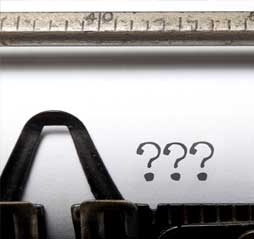


Do you accept future royalties as payment?
Not exclusively. See previous question.
![]()
How does the writing process work?
Take another quick look at the first question, about the three variations.
If I’m working as a ghostwriter, I spend many hours researching the author and his/her background and the field of expertise involved. I collect everything I can about the person and the topic, and supplement it with extensive interviews. Then I sort of swim around in that pile of material, absorbing the main ideas and looking for the magic – the key idea that is new, and a compelling way to present it. Then I develop a structure, and start writing — all with frequent coordination with the author, of course. This is, as you might imagine, the most time-intensive of the three variations.
To understand the role of a collaborator, think of the term “co-author.” It’s quite similar, except that only one name appears on the cover of the published book. We start with something the author has already prepared. This could either be a rough draft of a manuscript, a book outline, a draft proposal, or some blend of those elements. My first task is to evaluate whether the material that is handed to me actually works as a book in the current marketplace; if not, I begin the process of restructuring the architecture. Once the author is on board with the new structure, I begin writing, using the author’s pieces where possible and writing new material where needed. There is a great deal of back and forth during this stage.
A developmental editor usually begins with a completed manuscript that has been deemed problematic. Sometimes I am given a general memo of direction by the editor, sometimes not. In either case, my process is the same: read the manuscript, make extensive notes recording my first impressions, and begin to consider possible new ideas. new ways to preserve the author’s core message but present it to readers in a more compelling way. More often than not, this means tearing the original manuscript apart, and putting it back together with a new architecture, using some of the author’s original elements, doing new research, and writing new pieces. And all this must be done in the author’s voice, so that the finished product sounds exactly as if she/he wrote it.
![]()
![]()
How long does it take?
Typically, between 6 and 12 months. if I am not working on something else at the same time.
![]()
What types of books do you work on?
To date, my experience has been almost exclusively with trade books in the Business category. For those of you not involved in the publishing industry, that means books for a sophisticated general audience on a wide range of business topics, sold through usual retail outlets, principally bookstores. What you would see if you walked into a large bookstore and found the section labeled “Business” — books on leadership, management, investing, strategic planning, finance, human resources, sales management, marketing, and so on.
Even though my focus has been mostly on Business books, I believe quite firmly that the skills I bring to a project translate very smoothly to other types of nonfiction. I should say, however, that I have no particular experience with fiction or memoir. I read a lot of fiction, but have no track record editing it.
![]()
Do you ever ghostwrite proposals?
Absolutely. This is done on the basis of an hourly rate, billed in three parts: upon signing an agreement, at first draft, then the finished proposal. As with full manuscripts, it’s quite difficult to guess the final cost, but I can say – and often do — that’s it’s hard to do a worthwhile proposal for less than $10,000.
Sometimes literary agents ask me to rework a proposal they have received; they believe the project has merit but the proposal in its current form is weak. This too is billed on an hourly rate.
![]()


